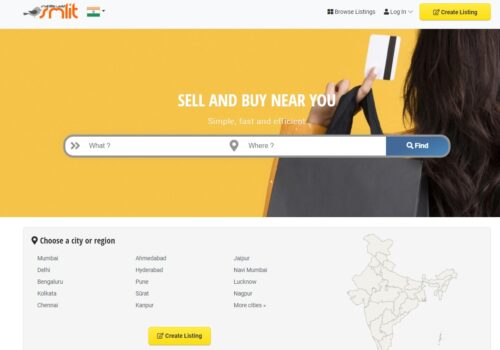Looking for a comparison between Zoho Vs Odoo? We got you covered.
If your firm’s success depends on a robust sales funnel and ongoing client involvement, you are likely in the market for a dependable customer relationship management (CRM) system.
Based on this description, it would seem that any business might benefit from a CRM system. While this may be true, not every organization can choose the ideal CRM system for its unique business requirements.
You must take the time to comprehend the complexities of the many CRM software systems accessible to you.
Let us compare Zoho and Odoo in detail.
What Is Zoho – All You Need To Know Before Comparing
Zoho CRM’s desktop and mobile editions provide sales representatives and managers with sophisticated contact management, team collaboration, automation, and analytics, making it my selection for the best mobile CRM.
Zoho CRM is a simple and uncomplicated CRM designed for small organizations whose sales staff are used to working remotely or are always on the go.
It provides full contact and deals management with unique capabilities, such as the ability to execute macros – a series of actions or sequences that can be applied to a group of contacts – and convert leads with automatically formed related accounts and deals with a single click.
The desktop capabilities of Zoho CRM are perfectly replicated in its mobile CRM application. You may quickly work with your team, contact your leaders, keep on top of your tasks and navigate to your next meeting using your mobile device.
Zoho CRM is my top pick for a mobile CRM since it provides remote access to analytics, visual dashboards, AI-powered sales insights, and voice support, unlike many other best CRM software.
The initial setup of Zoho CRM is fast and straightforward due to the company’s website and the offered example data. If you encounter difficulties, a rich knowledge base and an active user community might be of assistance.
Additionally, you may contact Zoho’s customer service by email, phone, or live chat.
In addition to onboarding and remote screen-sharing support, aid in selecting tailored settings, and a dedicated account manager, premium subscriptions include these features.
Zoho CRM provides a sandbox for administrators comfortable working “under the hood” to test system settings and adjustments in a safe environment before deploying them to the live CRM environment.
Zoho provides numerous CRM data and statistics that remove uncertainty from strategic decision-making. Compiling information from marketing campaigns, quotations, leads, transactions, sales activities, custom reports, and cohort metrics allows company managers to view data from numerous aspects.
Zoho’s AI-powered Anomaly Detector identifies possible bottlenecks in your sales process so that you don’t have to search for them manually. You may generate CRM reports from scratch or using one of many available templates, then export and distribute them as CSV, Excel, or PDF files. The mobile app from Zoho enables you to monitor, zoom in on, share, and show critical performance indicators from anywhere.
What Is Odoo? – All You Need To Know Before Comparing
Odoo delivers a huge, fully-customizable enterprise-level platform. You may construct the necessary functionality as open-source software and integrate it with almost any application.
The Odoo framework integrates CRM and ERP into a single application. Together, they simplify your business operations, resulting in a more streamlined, data-driven, and productive company.
The capabilities of an ERP system enable total insight into fundamental company activities. And CRM allows you to use your organization’s data to cultivate lucrative and long-lasting partnerships.
The CRM + ERP is equipped with features for inventory, HR, marketing, sales, eCommerce, and collaboration, among others.
The abbreviation Odoo stands for “on-demand open object.” This provides much customization flexibility for modules, processes, fields, and features. Before offering access to such much customization, most closed CRMs place you in a higher pricing band. However, since Odoo is an open-source platform, your only limitations are your ingenuity and technical expertise.
Odoo also simplifies typical user additions, and its community of developers ensures that the platform is constantly evolving. Some customers have complained about the lack of accessible technical documentation on the vendor’s website.
Before trying to implement and configure the Odoo platform, it is suggested that you have relevant expertise.
Creating a smooth transition between divisions is the ambition of organizations of all sizes. Odoo can efficiently transfer a transaction from sales to purchase order to manufacture order to delivery.
All your company’s information is stored in a single software that all employees can access. Odoo can automate the handoff from one team to the next when each department completes its task.
Order fulfillment no longer requires water cooler chatter, email chains, and paper trails. Automatic data transfer occurs between stages of a client transaction.
It is a comprehensive resource for internet companies. Marketing You may create websites on the Odoo platform, allowing for easy connections with other departments like marketing and analytics.
Additionally, it is more flexible than other website builders, such as WordPress, and website hosting is free.
Visitors to the Internet are no longer an anonymous mass. The UTM trackers of Odoo may provide geolocation, lead source, and website use data. You may also get push alerts if a valued account accesses your website.
You may design email campaigns with an infinite number of email sends. This is a welcome contrast to the several CRMs that impose stringent constraints on mass emailing. Odoo enables audience segmentation for tailored appeals.
Quick Links:
- Zoho VS Insightly: Which Is Right For Your Business?
- Zoho Vs G Suite: Comparison 🚀Which One is Best? (#1 Pick)
- HubSpot Vs Zoho: Which Is Better CRM Software? Is HubSpot Better Than Zoho?
- Zoho Meeting vs Zoom: Which One Is Better?
Conclusion: Zoho Vs Odoo 2024
Both Odoo and Zoho provide CRM systems with enhanced flexibility, scalability, and interoperability to meet your different company requirements. Zoho provides advanced business intelligence capabilities in a solution for customer relationship management that is both efficient and economical.
In addition, it has launched Zia, a text- and voice-capable AI-powered assistant. Odoo has lately gained in popularity as a result of multiple significant improvements and strong community support.
The community version is open-source and free to use; however business version needs a licensing fee. Both Odoo and Zoho provide users with a free 15-day trial period.
After all this, I would recommend Zoho over Odoo.






